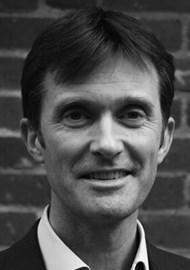
Declan Costello,
MA, MBBS, FRCS(ORL-HNS),
Editor, ENT & Audiology News;
Consultant Ear, Nose and Throat Surgeon,
Wexham Park Hospital,
Slough, Berkshire, UK.
As the world takes stock of the coronavirus situation, we find ourselves in uncertain times. Nobody knows what the next few months will hold, but in the UK, certain sectors of the economy are beginning to open up again – shops, restaurants and pubs are opening their doors after several months of lockdown. One of the sectors hardest hit has been the entertainment industry: in particular, singing has been singled out as an especially ‘dangerous’ occupation, and in many countries (including in the UK) singing has been entirely banned in public.
As a singer myself, I was keen to look at the dangers of singing in an objective way, so I have been working on a research collaboration with aerosol scientists from Bristol University (led by Prof Jonathan Reid) and with other medics (notably Natalie Watson, an ENT Specialty Trainee from London, and her husband, Chris Orton, who is a Research Respiratory Physician at The Brompton Hospital). In a further example of the amazing pace of innovation over the last few months, this research project has delivered results in the space of just a couple of months and, as a result of the findings, we were thrilled to hear that the UK government had changed its policy in mid-August to allow indoor singing. In recent weeks, I have been asked many times whether we will be singing in time for Christmas… we are now a step closer to that!
For September/October, we reflect the uncertainty of the current situation. In looking ahead to the IFOS World Congress meeting in Vancouver, Brian Westerberg and Frederick Kozak acknowledge that the congress may have to be postponed from its originally scheduled dates in June 2021 – we all now accept that some meetings might be postponed for many months, or indeed switch to an online format. Drs Westerberg and Kozak have brought together some excellent articles, and you can read their introduction here. Continuing the IFOS theme, Erica Zaia introduces you to our Audiology Features, with articles from some of the key players in the field.
Our former Editor and good friend, Ray Clarke, has been speaking to a number of leading figures in the worlds of ENT and audiology: they explain how their own organisations have been responding to the crisis, with particular emphasis on the difficulties with organising courses and conferences. Click here for this article, where you will also find a link to a recorded Zoom meeting between Ray and some of the interviewees.
Elsewhere, Emma Stapleton has sent us a fascinating conversation with the leading Cochlear Implant Surgeon, Michal Luntz: she herself is profoundly deaf and has had a cochlear implant. This clearly gives her a unique insight into this topic and you can read the interview here.
Within the editorial team here at ENT & Audiology News, we have some changes to report: we are delighted to be welcoming back Nazia Munir (Consultant ENT Surgeon, Aintree University Hospital, Liverpool), who worked on the magazine some years ago. Alongside Hannah Cooper (Lecturer/Clinical Scientist (Audiology), UCL Ear Institute), she will be taking over the role of Editor of the Journal Reviews section, replacing Charlie Giddings; Charlie has done a fantastic job for many years and we wish him well in his future endeavours. At the same time, we bid a fond farewell to Jo Rimmer – another stalwart of the magazine for many years. With her recent elevation to the status of Associate Professor, Jo has many other commitments! We are enormously grateful for all her input in her time working with us.
Given that we have met up with so few of our ENT and audiology friends recently, we are more keen than ever to hear from you – by email, post or on social media. We very much hope to see you in person soon!




